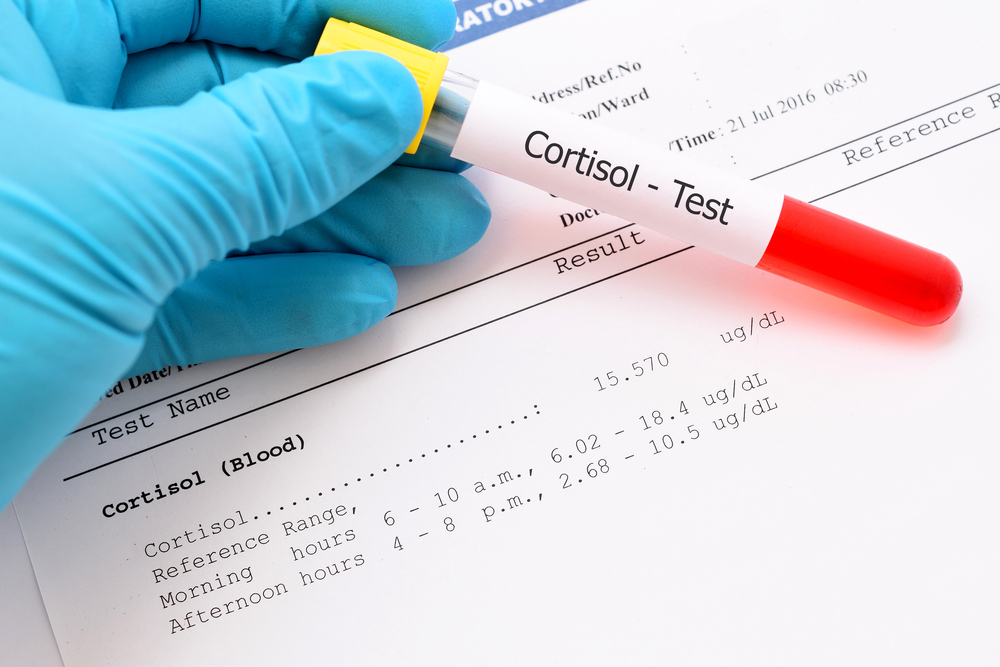Metopirone Normalizes Cortisol Levels, Improves Clinical Parameters in Cushing’s Patients When Used Pre-Surgery, Study Finds

Pre-surgery treatment of adrenocorticotropic hormone (ACTH)-independent Cushing’s syndrome with Metopirone (metyrapone) leads to effective and safe improvement of hormonal levels and clinical parameters, according to a new pilot study.
The research, “Preoperative treatment with metyrapone in patients with Cushing’s syndrome due to adrenal adenoma: a pilot prospective study,” was published in the journal Endocrine Connections.
Medications often are used to control excessive cortisol production (hypercortisolism) and lessen clinical manifestations of Cushing’s syndrome in cases where surgery fails or not feasible.
Metopirone inhibits the enzyme 11beta-hydroxylase, which plays a critical role in cortisol synthesis. Although retrospective studies showed that Metopirone is effective, lowering cortisol levels to target values within 48-72 hours, no prospective study has been conducted to date.
Unlike in ACTH-dependent Cushing’s — in which blocking 11beta-hydroxylase may lead to a compensatory increase in ACTH production with associated adverse side effects such as inflammation, blood pressure rise, or acne – patients with ACTH-independent disease may not experience such ACTH increase due to its chronic suppression by cortisol, which could improve Metopirone’s safety profile.
This caused the team to hypothesize that Metopirone may be well-suited for pre-surgery treatment of patients with ACTH-independent Cushing’s due to an adrenal gland tumor.
The open-label, pilot study assessed a three-month treatment with HRA Pharma’s Metopirone oral tablets in seven patients (five women, median age 40 years, range 30-66 years) with ACTH-independent disease, who were scheduled for adrenal gland removal (adrenalectomy).
The study was conducted from March 2014 to February 2016 at three tertiary academic centers in Italy.
Endocrine and clinical evaluations were performed at study start at days 14, 31, 48, 65, and 82. All patients started with an initial 250 mg dose three times per day, later adjusted depending on each patient’s hormone levels, clinical features, and tolerance.
At baseline, four patients had mild-to-moderate hypercortisolism, while three had severe hypercortisolism. No patient had had prior treatment with Metopirone or with any compound targeting cortisol excess.
In all patients, 24-hour urinary free cortisol (UFC) levels decreased to the normal range from baseline to day 82, with a median change of 76.0% after two weeks and 84.5% after one month of treatment. Normalized UFC level was already reported on day 65.
Serum and salivary cortisol levels also decreased significantly, while no increase of plasma ACTH and serum dehydroepiandrosterone, a male hormone, was found. Serum testosterone and androstenedione levels increased in women, although remaining within the normal range.
Health-related quality of life score improved, while blood pressure decreased. Three patients were able to reduce the number of anti-hypertensive medications (those for high blood pressure). “The prompt and remarkable effect on blood pressure outlines the tight link between hypercortisolism and hypertension,” the team wrote.
All Metopirone-related adverse side effects — nausea, fatigue, low grade fever, swelling of lower limbs, and facial rash — were mild-to-moderate and were temporary. One woman reported improvements in body hair problems and menstrual cycles, which the scientists attributed to the beneficial effect of cortisol reduction.
“This prospective pilot study demonstrated that metyrapone is effective in normalizing biochemical and clinical parameters in patients with CS [Cushing’s syndrome] due to adrenal adenoma before surgical intervention, with minimal side effects,” the scientists wrote.
“Since our patient characteristics represent the average patient with overt CS due to an adrenal adenoma, we think that our results are generalizable to this patient population,” they added.
Of note, one of the study’s authors received research funding from HRA Pharma.






